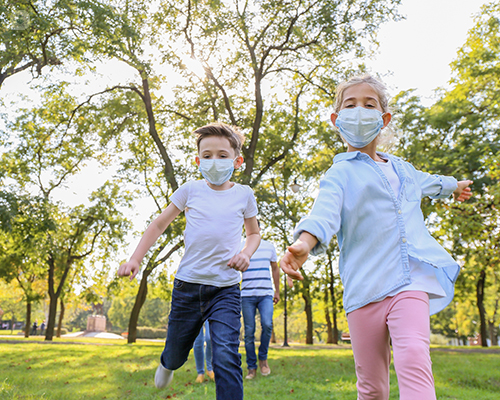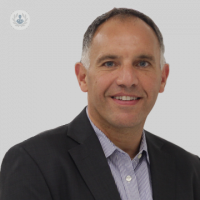Tackling hard questions about the pandemic from young people
Written in association with:Dr Jon Goldin is a highly esteemed consultant in child and adolescent psychiatry based in central London. He has over twenty five years’ experience in assessing and managing emotional disorders and depression in young people. In today’s article, the first in this series on coronavirus and mental health, he offers expert advice for parents on discussing the coronavirus pandemic with children.

How can parents answer tough questions about the pandemic?
In these uncertain times, it is understandable that children have many questions about the frequent changes that are occurring in their day to day lives and in the wider world. For parents, however, answering these questions can be daunting and uncomfortable. It is easy to brush off questions about particularly difficult topics, such as death and illness, in an attempt to shield children from hard truths. Dr Goldin discourages this, however:
“ It’s important to be honest about the fact that you are feeling somewhat anxious yourself. If you try and pretend that everything is absolutely fine and normal, a child will understand pretty quickly that you’re not being straight with them. ”
Keeping calm and being available for children’s questions is important as it creates space for them to express their worries and concerns. Being honest about your own anxiety about the pandemic, without showing panic, will normalise and validate your child’s feelings. This open dialogue will also give you the opportunity, as a parent or guardian, to offer reassurance. Dr Goldin suggests offering the work of scientists and medical professionals, the vaccines available and the collective efforts of better hygiene and hand washing for example, as sources of comfort and reasons to be positive about what is to come.
What else can parents do to support their children during the uncertainty of the pandemic?
Having access to accurate facts and advice, without being overexposed to scary headlines or inaccurate information, will also empower children and young people to feel that they have some agency in a situation which could otherwise leave them feeling powerless. Informing children about what they can do to make a positive impact, such as regular hand washing, helping others where possible, and maintaining good general health, will help them to feel that they have some control over what is happening.
How can parents approach the subject of the pandemic sensitively?
If children aren’t initiating a conversation about the pandemic but you feel that they are worried, look for a calm moment to check in and ask how they are doing. With teenagers, this can be challenging. Dr Goldin suggests that whilst out driving, it might be a good moment to open up a conversation as people tend to face forwards without having to make eye contact. In this way, people sometimes feel more comfortable to openly express their feelings or concerns. Dr Goldin states that with a young person of any age, it is vital to “take your cues from them” rather than imposing an unwanted conversation and he emphasises the need to remain calm and honest when responding.
You can find videos of Dr Goldin discussing the effects of the coronavirus pandemic on mental health on his Top Doctors profile. If you think your child would benefit from a consultation with Dr Goldin to discuss their mental health, visit his Top Doctors profile.


